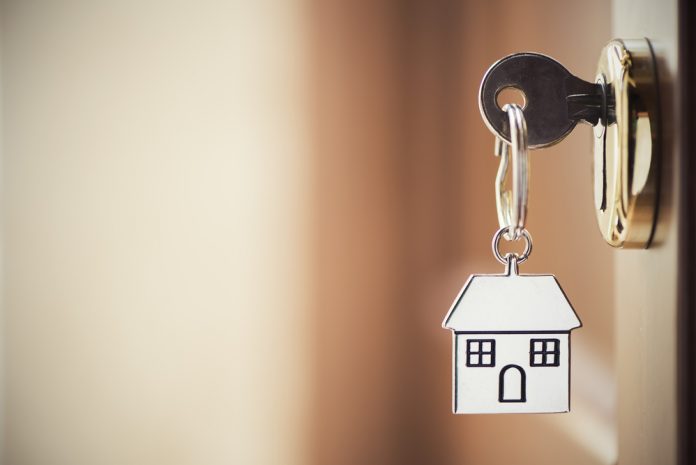The safe. The humble, traditional, much-loved safe.
We’re all familiar with them. They’re crammed into banks, hiding in our hotel rooms and always crop up in police dramas or Hollywood heist films. But while we have that familiarity with them, and understand their value when it comes to increased security, very few of us actually own a safe.
But we really should.
Safes, especially new-age variants with high-security features, are a potent tool when it comes to crime prevention and security. Safe-cracking isn’t like it was during the gold rush — getting into a modern safe without authorised access is extremely difficult, and near impossible, for most.
What’s This Got to Do with Home Business?
Home businesses are notoriously insecure.
Why?
Because our homes are, unfortunately, also notoriously insecure. A staggering four million burglaries are carried out each year on residential properties. Break-ins are rife across the country and most homes simply are not equipped to deal with them. New data provided by Security Systems News suggests that, by 2021, the adoption of security systems will have risen to cover 27% of households — which means, even after increased demands, 73% of all homes will still be without even basic alarms.
But, while the majority are at risk, if you run your business from home, you stand to lose even more in the event of a burglary. The threat of burglary has major implications for a company operating out of a residential property. Stolen business assets and equipment impact your very livelihood and can also result in severe legal consequences.
There is, though, no way you can really expect a home business owner to afford the same type of security as a large company working out of an office. Alarm systems, access controls, CCTV — they’re all standard practice for corporate entities, but expensive and often unnecessary spends for somebody operating a home business.
However, no security at all leaves you vulnerable. It leaves your home business open to threats of break-ins and burglary. This brings us back to the humble safe. A simple and easy to install security unit, it offers an affordable solution to a critical problem.
But how exactly can a safe reduce the risks associated with the operation of a home business?
Keeping Safe: Four Home Business Threats a Safe Can Solve
1: Secure Business Assets
Theft prevention is the primary reason your home business needs a commercial safe, and for good reason. The average burglar is not your typical world-class bank robber: most are opportunistic criminals who access your property through an obvious weakness, like an open window or unlocked door. Further to this, most burglaries are quick — thieves want to get in and out fast, which means the average break-in lasts only a few minutes. The result is that you don’t need high-tech security solutions to stop them in their tracks; you just need something that they aren’t prepared for, like a modern safe.
Even if your burglary is a targeted crime and not just a random act, safes still present a challenge most criminals cannot overcome, especially if you invest properly and secure your business assets within something with high-quality security features, such as a biometric lock or multiple access layers.
Putting up such a simple, but effective, barrier means burglars are just not able to access your business assets and remove them from your home property, which is important, as 90% of stolen goods are never recovered by police. Once your company property leaves your house, it’s most likely gone for good.
2: Secure Business Insurance Payouts
When it comes to complaints about insurance companies, two of the top three biggest issues people have is that firms either refuse to pay an appropriate amount or decline to offer a payout at all.
Insurance companies do pay out more often than they don’t, but that is of little comfort to a home business owner who has recently faced a major theft and cannot recover the goods or financial assets that they’ve lost through their loophole-jumping insurer.
So how do safes provide a solution to this problem?
Many safes, especially those used for commercial purposes, are assigned insurance cash ratings. This means anything secured within the safe is given protection by insurance firms up to a certain cash value. If your home was to be burgled and your safe accessed, and even if business goods are stolen, they are given guaranteed coverage — providing you have made arrangements on your policy prior to the theft.
3: Secure Customer and Company Data
It’s hard to look anywhere in the business world without catching sight of some story relating to data protection, or data protection charges. Facebook experienced a nightmare scandal in 2018 for its handling of personal information, as did hotel chain Hilton, which was fined $700k for a breach.
A home business may not match the scale of these corporate giants, but that doesn’t mean you can be any more complacent. Failure to protect your client’s information can result in breaches that create genuine legal peril — not to mention black marks against your company, plus loss of sales and revenue.
While many protect digital data, how do you handle physical documents? Paper records that detail customer and business information need to be secured just the same as computer files. In the case of burglary, these records could be accessed or stolen, leading to serious consequences.
Safes are reliable prevention methods that eliminate much of the threat posed to business data. Secured within a high-security unit, you can still access, store and use your customer’s information when necessary, without fear of unauthorised viewing or theft.
4: Secure Against Secondary Threats
Theft isn’t the only threat that your business assets face. Other dangers, including damage through fire, damp, flooding and a myriad of different natural disasters, have the potential to cause serious problems.
Items left out in the open are at risk of incurring damage, which is why safes offer a solution. Secure your business goods within a safe — one that has specific damage protection features like fire and water resistance — and you’ll dramatically reduce the risk of loss in the event of disaster — (or spilt milk).
Find a Home-Based Business to Start-Up >>> Hundreds of Business Listings.















































